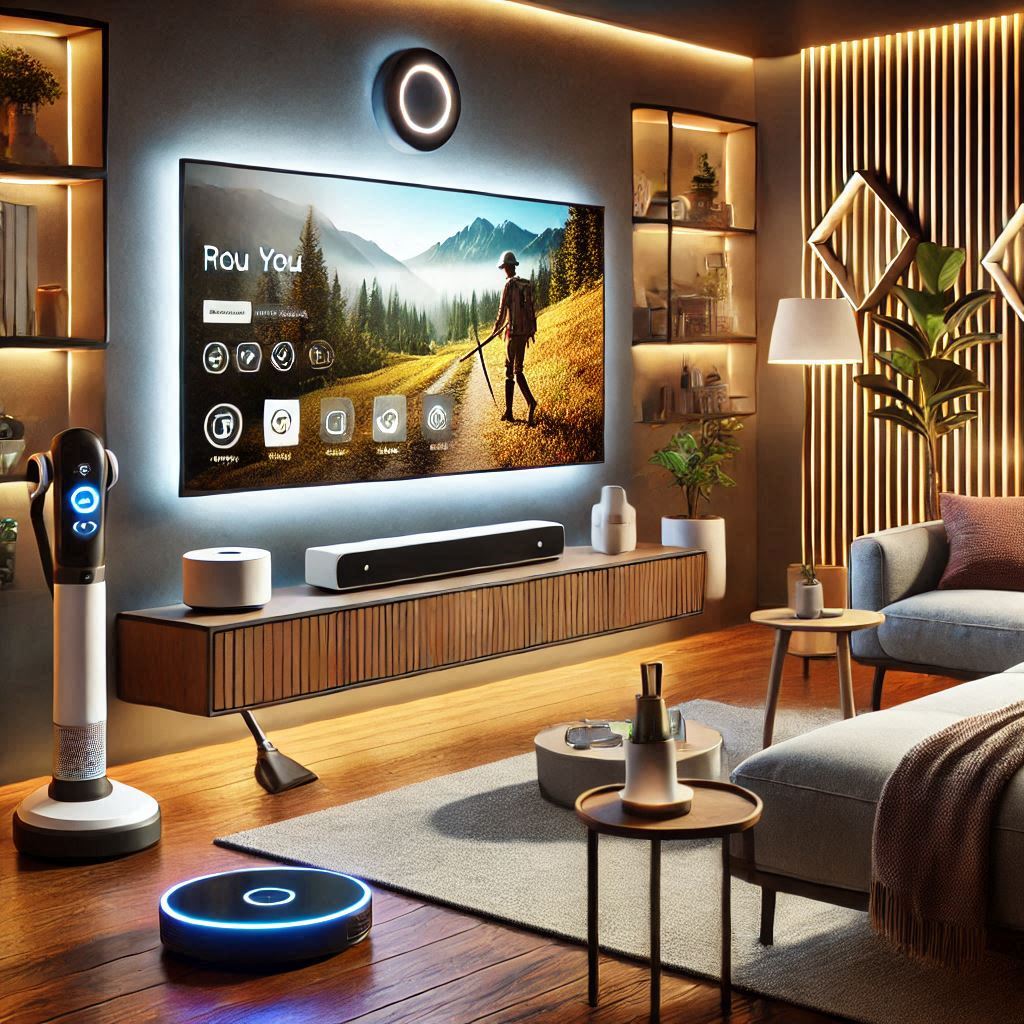Smart home technologies have revolutionized modern living, transforming homes into interconnected ecosystems that prioritize convenience, security, energy efficiency, and entertainment. Here’s an in-depth look at the various technologies available and the advantages they bring to homeowners.

1. Smart Thermostats
Smart thermostats like Nest, Ecobee, and Honeywell allow homeowners to control their heating and cooling systems remotely via smartphone apps. These devices use machine learning to learn your habits and adjust temperatures for maximum comfort and efficiency.
- Benefits:
- Significant energy savings by reducing heating/cooling when the house is unoccupied.
- Remote access ensures you can prepare a cozy or cool environment before arriving home.
- Integration with smart assistants enables voice control.
2. Smart Lighting
Smart lighting systems, including brands like Philips Hue and LIFX, provide customizable and energy-efficient illumination options. They can be controlled via apps, voice commands, or automation routines.
- Benefits:
- Mood lighting with adjustable colors and brightness levels.
- Motion-activated options for enhanced convenience and safety.
- Energy-efficient bulbs reduce electricity costs.
3. Smart Security Systems
Advanced security systems combine cameras, sensors, and alarms, all managed through a central hub or app. Companies like Ring, Arlo, and SimpliSafe are leaders in this field.
- Benefits:
- Real-time alerts and video streaming provide peace of mind.
- Remote control of locks, alarms, and cameras ensures home security even when away.
- Integration with smart doorbells allows for two-way communication with visitors.
4. Smart Appliances
Kitchen and household appliances, including refrigerators, ovens, washers, and vacuum cleaners, are becoming smarter with Wi-Fi connectivity and AI capabilities.
- Benefits:
- Smart refrigerators can track inventory, suggest recipes, and even order groceries.
- Robotic vacuum cleaners like Roomba automate floor cleaning.
- Connected ovens and microwaves offer precision cooking with pre-programmed recipes.
5. Smart Home Hubs
Smart hubs, such as Amazon Echo, Google Nest Hub, and Apple HomePod, act as central controllers for all smart devices in the home.
- Benefits:
- Seamless integration of multiple devices across brands.
- Voice-activated commands streamline operations.
- Compatibility with home ecosystems ensures user-friendly experiences.
6. Smart Entertainment Systems
Home entertainment has reached new heights with smart TVs, streaming devices, and surround sound systems from brands like Samsung, LG, and Sonos.
- Benefits:
- Voice-controlled entertainment simplifies navigation.
- High-quality sound and video offer a cinema-like experience at home.
- Multi-room audio systems create a synchronized music environment.
7. Smart Irrigation Systems
For gardening enthusiasts, smart irrigation systems like Rachio provide automated watering schedules based on weather forecasts and soil conditions.
- Benefits:
- Saves water by avoiding over-irrigation.
- Remote control ensures optimal plant care even when traveling.
- Reduces water bills while maintaining a lush lawn.
8. Energy Management Systems
Energy monitoring systems give homeowners insights into their energy consumption patterns and help identify areas for improvement.
- Benefits:
- Detailed usage reports encourage energy-efficient behaviors.
- Integration with solar panels and battery storage systems optimizes energy use.
- Reduced carbon footprint and long-term savings on utility bills.
9. Smart Water Leak Detectors
Devices like Flo by Moen or Phyn monitor water flow and detect leaks, preventing costly water damage.
- Benefits:
- Early detection reduces the risk of extensive property damage.
- Remote monitoring allows immediate shut-off during leaks.
- Insights into water usage promote conservation efforts.
10. Voice Assistants
Voice-controlled assistants like Amazon Alexa, Google Assistant, and Apple Siri act as digital helpers that simplify daily tasks.
- Benefits:
- Hands-free control of smart devices enhances accessibility.
- Scheduling, reminders, and shopping lists improve productivity.
- Entertainment options like music, news, and jokes add fun to daily routines.
11. Smart Locks and Doorbells
Smart locks and video doorbells enhance both security and convenience, making home access seamless yet safe.
- Benefits:
- Keyless entry via smartphone apps eliminates the need for physical keys.
- Video doorbells offer real-time communication and security footage.
- Temporary access codes for guests ensure control over entry.
12. Drawbacks and Considerations
While smart home technologies provide numerous advantages, they come with challenges, such as initial costs, compatibility issues, and data security concerns.
- Addressing Concerns:
- Choose devices with robust encryption and security protocols.
- Opt for systems that integrate well with existing devices.
- Regular software updates mitigate cybersecurity risks.
Conclusion
Smart home technologies are reshaping the way we live, making homes safer, more energy-efficient, and infinitely convenient. Whether you’re automating lighting, securing your property, or optimizing energy use, these innovations offer tangible benefits for homeowners in every aspect of daily life. As technology continues to evolve, the possibilities for creating smarter, more connected homes are virtually limitless.
